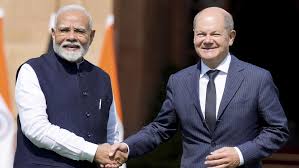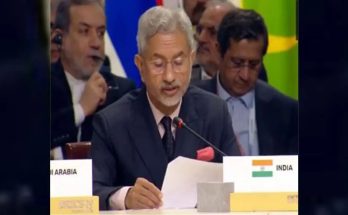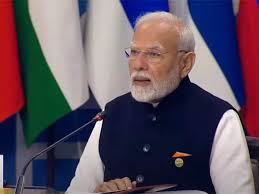 Barely days after the installation of a new government in the island nation, India’s relations with Sri Lanka are already on an upswing and have entered a phase of resetting, with President Maithripala Sirisena planning to visit India soon, followed by a reciprocal visit by India’s Prime Minister Narendra Modi.
Barely days after the installation of a new government in the island nation, India’s relations with Sri Lanka are already on an upswing and have entered a phase of resetting, with President Maithripala Sirisena planning to visit India soon, followed by a reciprocal visit by India’s Prime Minister Narendra Modi.
India’s External Affairs Minister Sushma Swaraj held three-hour long discussions with her Sri Lankan counterpart Mangala Samaraweera on a bright sunny day in New Delhi January 18. Reflecting the new shine in India-Sri Lanka ties, which had suffered in the last few years due to then President Mahinda Rajapaksa’s pro-China adventurism, the discussions, as Syed Akbaruddin, spokesperson of India’s external affairs ministry said, showed “warmth and mutual understanding” and resulted in substantive outcomes on the way ahead in this crucial relationship. The key issues that figured in the discussion included the new Lankan government’s position on the political reconciliation process in Sri Lanka, India’s multi-pronged development partnership with the island country and evolving joint mechanisms for the welfare of fishermen.
The choice of New Delhi as his first foreign destination after being sworn in five days ago reflects the priority the new government places on its relations with India, said the spokesperson.
The wide-ranging discussions culminated in plans for a series of two-way high-profile visits, which are expected to reset and rejuvenate India-Sri Lanka relations in the months to come. Sushma Swaraj is expected to travel to the neigbouring island nation soon for holding the meeting of the joint commission. This will be followed by President Sirisena’s trip to India, likely February. The Sri Lankan foreign minister is also carrying an invitation for an early visit by India’s prime minister, said the spokesperson.
 The ouster of Rajapaksa in the January election and the landslide victory by Sirisena promises to open a new chapter in ties between the two countries, which are intimately bound by history, culture and the burgeoning trade and investment.
The ouster of Rajapaksa in the January election and the landslide victory by Sirisena promises to open a new chapter in ties between the two countries, which are intimately bound by history, culture and the burgeoning trade and investment.
Much to the cheer of India, the new government in Colombo has indicated willingness to rebalance its ties with China and build closer relations with India. “President Rajapakse’s regime tried to play China against India and India against China and…came a cropper,” Sri Lanka’s new Prime Minister Ranil Wickremasinghe told NDTV in an interview. The new government in Colombo has said it will review Chinese infrastructure projects, including a US$1.5 billion (S$1.88 billion) port deal with China Communication Construction Co Ltd, awarded under the previous administration.
Mr Rajapaksa’s courtship of China, and using the Asian giant to counter-balance India has been a sore issue with India’s diplomatic-strategic establishment. The Rajapksa government had rubbed India the wrong way through a series of missteps –- Colombo allowed a Chinese submarine to dock there twice. The previous Lankan government’s perceived indifference towards the plight of the Tamils of Indian origin following Colombo’s victory against the LTTE has created much resentment in India. India is now hoping that the Sirisena government will be more proactive in addressing legitimate aspirations of the Lankan Tamils and fast-track the political reconciliation and devolution process.
Author Profile

- Manish Chand is Founder-CEO and Editor-in-Chief of India Writes Network (www.indiawrites.org) and India and World, a pioneering magazine focused on international affairs. He is CEO/Director of TGII Media Private Limited, an India-based media, publishing, research and consultancy company.
Latest entries
 DiplomacyOctober 24, 2024Jaishankar unveils 5-point agenda for South-friendly world order
DiplomacyOctober 24, 2024Jaishankar unveils 5-point agenda for South-friendly world order India and the WorldOctober 24, 2024Thaw in Kazan: Modi, Xi unveil roadmap for reviving India-China dialogue
India and the WorldOctober 24, 2024Thaw in Kazan: Modi, Xi unveil roadmap for reviving India-China dialogue India and the WorldOctober 23, 2024India, China defrost ties in Russian winter, all eyes on Modi-Xi meeting
India and the WorldOctober 23, 2024India, China defrost ties in Russian winter, all eyes on Modi-Xi meeting DiplomacyOctober 20, 2024Ahead of Modi’s visit, Putin invokes Bollywood bonding, lauds India’s Ukraine diplomacy
DiplomacyOctober 20, 2024Ahead of Modi’s visit, Putin invokes Bollywood bonding, lauds India’s Ukraine diplomacy







